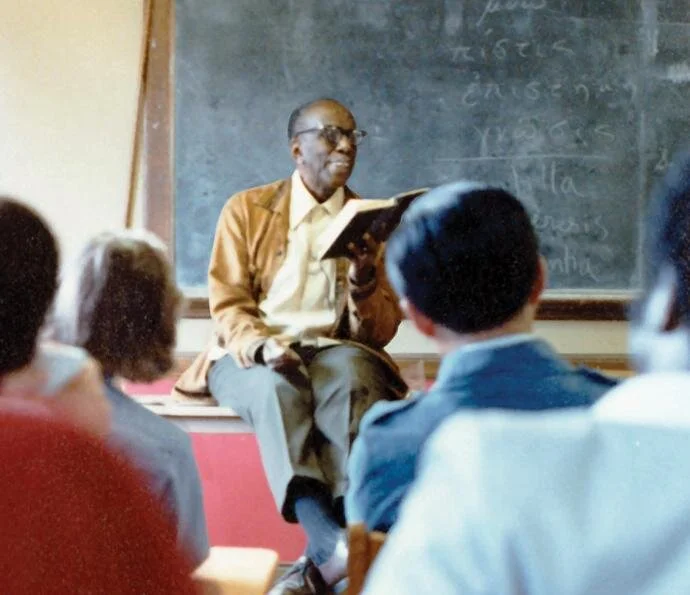On the Spiritual Life after the Darkness of Covid-19, Part Two: on Solitude
The great mystery of the spiritual life—the life in God—is that we don’t have to wait for it as something that will happen later. Jesus says: ‘Dwell in me as I dwell in you.’ It is this divine in-dwelling that is eternal life.
—Henri Nouwen, Here and Now, p. 92
I. This is the second reflection in a four-part series on the Spiritual Life as illuminated by Henry Nouwen. In the reflection for June 18, I introduced the four principal elements of this life—Prayer, Solitude, Healing, and Ministry—and offered some thoughts on Nouwen’s way of Prayer. In this reflection, I want to examine Nouwen’s way of Solitude and focus on how solitude is essential to a vital and living spirituality, as it is for an active life of Prayer.
II. in several of his books, Nouwen helps us see that if solitude is not part of the mix, it is impossible to live a spiritual life. And our “active life” –our day-to-day experiences at work, with our families and in our communities--must not impede our path to solitude, for solitude begins with a time and place for God, and him alone. If we really believe not only that God exists but also that he is actively present in our lives—healing, teaching, and guiding—we need to set aside a time and space to give him our undivided attention. (Making all Things New, p.89) But then we have to ask: How often, if ever, do we give anyone our “undivided attention”? And do we—can we—give our undivided attention to God?
III. For Nouwen, “silence is solitude practiced in action,” and he is uncompromising in his commitment to making time for solitude and to connecting solitude with silence.
The great mystery of the spiritual life—the life in God—is that we don’t have to wait for it as something that will happen later. Jesus says: ‘Dwell in me as I dwell in you.’ It is this divine in-dwelling that is eternal life."
— The Way of the Heart, p. 107
Without silence, solitude will be very difficult to attain. And it is in the silence of solitude that we can give our undivided attention to God.
IV. We often mistake solitude for “being alone” and equate it with loneliness. If solitude has any connection with “being alone” it is only about “being alone” with God, one to one. At one point in an entry from his Book of Hours, Nouwen, offers the words of Jesus from the Gospel of Matthew: “Go to your private room and, when you have shut your door, pray to your Father who is in that secret place.” (Mathew 6:6). The person who practices solitude deliberately embraces silence. In contrast, the person who is alone often has silence imposed upon her. Indeed, we now recognize that in some mysterious way, the darkness that COVID-19 brought to those of us who experienced the involuntary imposition of solitude and silence--an often paralyzing condition—may have wreaked havoc with our spiritual lives.
V. In the post COVID-19 environment we are entering comes the strong desire to return to the days of congregational worship, and being with one another in our familiar worship spaces: to sing and pray aloud in worship; to have in-person preaching; to attend the coffee hour or the Rector’s Forum after worship; to see and reconnect with old friends and acquaintances and, perhaps, even to imagine going back to the way things were 15 months ago. These urges are understandable. However, in the re-embrace of our worship communities and the delight that comes with such a reconnection, we can also too quickly put aside the lessons we learned during the most painful months of the pandemic. These were the lessons that came with the silence of solitude and our first hesitant steps toward making sense of what was being asked of us: to recognize and accept suffering; to understand death anew; and to recognize that all kinds of things happen about which we can do nothing and for which we have no answers. Most importantly, and this is an essential point, and one we may miss: During the darkest days, we may have moved closer to finding a place for God’s presence in our lives and maybe, as Henri Nouwen would have it, our hearts will have “become like quiet cells where God can dwell, wherever we go and whatever we do.” (Making all Things New, p.79).
VI. As human beings and as children of God, we are meant to integrate our “active lives” with our spiritual lives. The solitude and the silence that often emerge from this integration offer us a way to reconcile those elements in our lives that are in conflict and, thus, make the integration more achievable. Here is how Nouwen sees this:
In solitude I get rid of my scaffolding: no friends to talk with, no telephone calls to make, no meetings to attend, no music to entertain, no books to distract, just me—naked, vulnerable, weak, sinful, deprived, broken—nothing. It is this nothingness that I have to face in my solitude, a nothingness so dreadful that everything in me wants to run to my friends, my work, and my distractions so that I can forget my nothingness and make myself believe that I am worth something.
— The Way of the Heart, p. 27
VII. It is in solitude, with its silence, that we can find God and experience his mercy and love. It is out of solitude that can come our most fervent and deepest prayers, the foundation of a life in God, and the dailiness of living in God’s presence.
Amen










